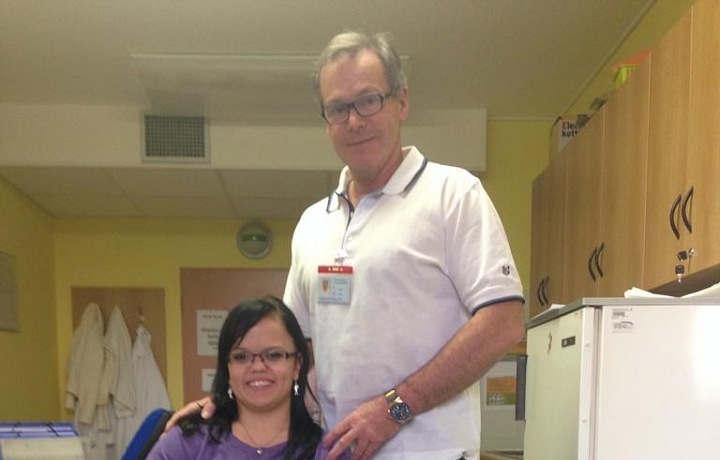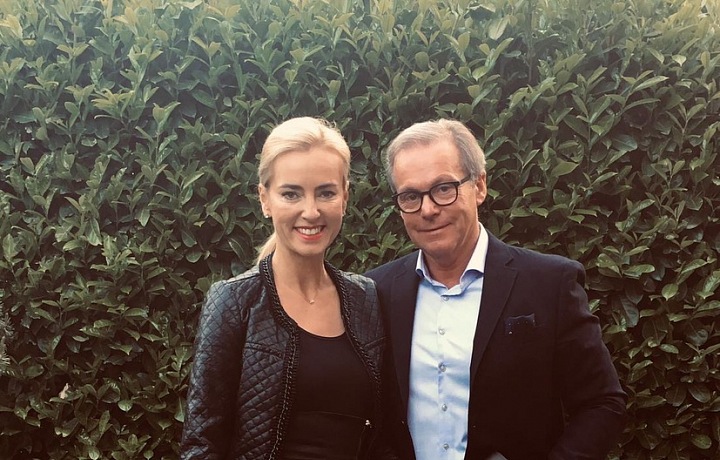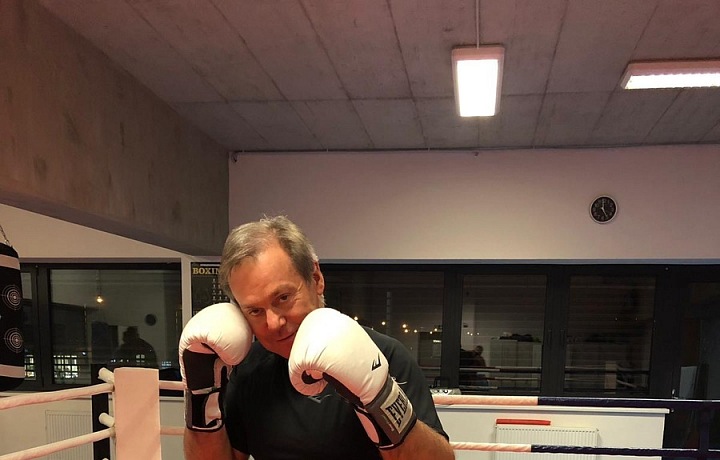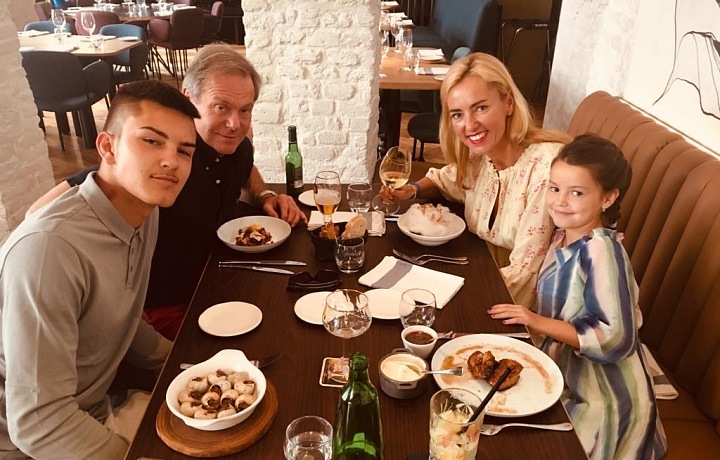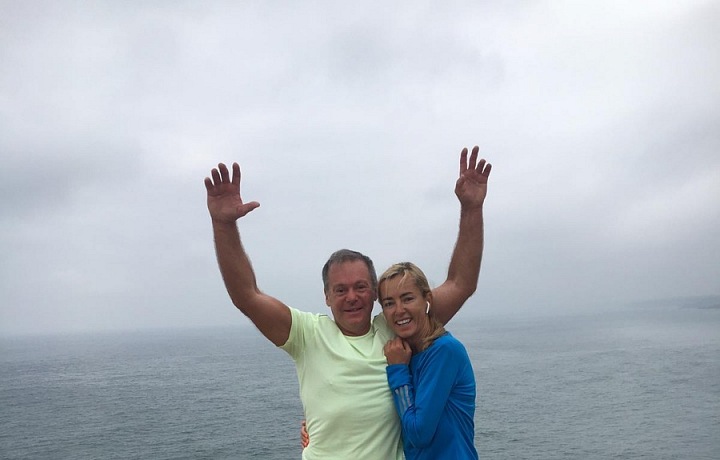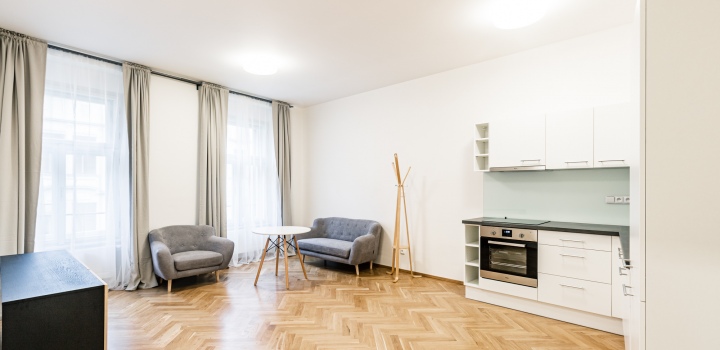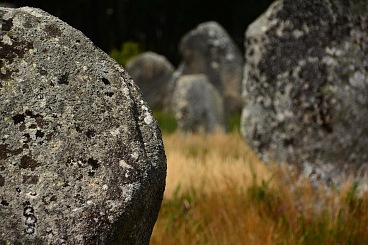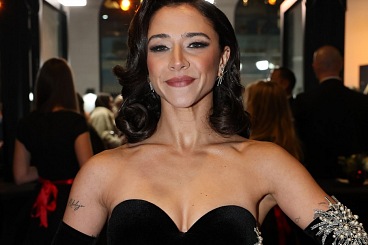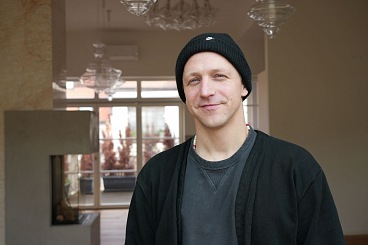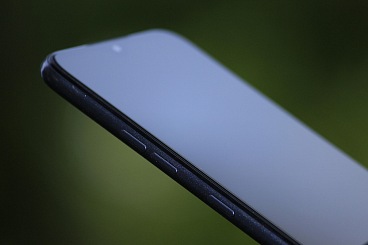Fast Confession - Neurosurgeon Jiří Chrobok: Karel Gott was an example of modesty, humility and an extremely strong will to recover
He is a leader in his field. Jiří Chrobok has been working as a neurosurgeon at the hospital Na Homolce for twenty-six years. He operated on celebrities such as Karel Gott, the triple Olympic winner Jan Železný and the actor Josef Laufer. Whenever someone has a problem, they want to get under his knife. In an interview for LP-Life.cz the doctor talked not only about his work, but also about his family and other passions.
It's shortly after Christmas. What does Christmas mean to you as a leading neurosurgeon? Do you perceive this time of year as specific?
No, not particularly, because there's still a lot work. We perform as many surgeries as usual, Christmas plays no role in that, because a lot of people have recently started to focus on having their surgery before the holidays, so that they wouldn't have to go on sick leave. Of course, many companies do have less work over the holidays, but we're certainly not among them.
As a husband and father of seven children, are you not involved in preparing things like baking or shopping for gifts at all?
Certainly not baking, that wouldn't turn out well, in my case it would end up being a disaster. I've managed to significantly reduce shopping for gifts, I proceed very practically and purposefully. Of course, all my children will be overjoyed to receive an envelope with a sufficient amount of money. (laughs)
You are a legend in your field, how many years has it been?
38 years.
When do neurosurgeons end their careers?
I suppose it largely depends on the work environment where the person practises. What team he works with and how long they are willing to accept the older person among them before saying goodbye. Of course, it also depends on the person concerned, on their physical and mental state. If they can keep their pace and a firm grip on the scalpel, if they have good results to show and no complications, then they can perform surgeries. That's what matters, it's individual.
Don't you think it might be time for you to rest?
No, I don't want to rest just yet.
You're not the typical pensioner type?
Definitely not, I'm certainly not looking forward to retirement, I'm terrified of it.
How old is your youngest child?
My youngest one is 8 years old.
Do you feel that when you have such a small child, you need to stay in shape for her?
I'm still mentally infantile, so, on the contrary, her age suits me and it suits her too. In any case, daddy can come up with better games than her much younger mummy.
You are also a grandfather. How do you perceive the line between being a top neurosurgeon, father, husband and grandfather? Do you treat your grandchild differently than your children? Grandfathers are said to pamper their grandchildren…
No. I believe that, in general, I am very kind to all the above and I don't differentiate between them. Even my youngest one has already figured out who is the weakest link in the family chain. Daddy allows everything, buys everything.
But at work, you have to be the one with a firm hand.
Yes. But I don't think I'm a despotic or a dictator type.
What would you say was the top achievement in the thirty-eight years of your career?
Serious conditions, when the patient is already heavily affected, half paralyzed, are what I consider a challenge. Of course, there is the danger that if they aren't immediately taken in surgery and properly operated on, they will end up in a wheelchair - either completely paralyzed from the neck down, or from the waist down. And that's a huge challenge. The greatest joy doesn't come from delivering a good performance in surgery, but from the results in the post-operative period, because those are often unforeseeable.
For some patients, everything progresses smoothly, and that warms up your heart in a way you can't imagine. Much depends on individuality, personality, will and mental state. Some patients can have the best rehabilitation, but they won't get through it. The greatest satisfaction is when they do get through it. That's amazing.
You've operated on many famous personalities. I recall that Karel Gott or Aleš Valenta were among them…
Regarding athletes, I can mention Jan Železný, Aleš Valenta, Radek Štěpánek, Mr. Brückner, he was the coach of the national football team. Also Theodor Pištěk, Vlastimil Harapes, then it was Pepa Laufer, with whom we've been very good friends since his surgery. We've actually been friends for over twenty years.
When you're operating on such a celebrity or icon, are you more nervous? Media often put pressure on you for this reason. How do you handle it?
Yes, of course. There is a greater deal of fear involved, not responsibility. Responsibility is the same for everyone, but there is more fear.
How can you fight it, when you know that the journalists and the public will "nail you" anyway? How do you deal with it mentally?
It's not possibly to methodically order yourself what to do. I have to deal with it inside, somehow.
What are famous patients like? Do they make it show that they're famous, demanding special treatment? Do they try to contradict your treatment?
Most of the abovementioned people, whether in the outpatient clinic or in the hospital, showed absolutely none of the so-called mannerisms of the famous. When it comes to surgery, they are fully focused on the course of treatment, so that they could return to active life as soon as possible. When the surgeon has their trust, they definitely don't try to contradict his methods. Moreover, Karel Gott, for instance, was an extraordinary example of modesty, humility and a strong will to recover.
Do you have some kind of ritual before entering the operating room?
Yes. Before I make the first cut, I throw the holders on the lamp, and they have to spin at least twice in the air. It's a juggler's trick, I've been doing it with both of them for many years. I tell myself that if the holder falls down, it won't go well. Whenever it fell, they gave me a new one, just in case. (laughs)
So you try several times?
Not anymore, now I always succeed on the first try. Many people can operate, but throwing holders, now that's rare. (laughs)
Are you already training other leading surgeons to follow in your footsteps?
Indeed. My colleague Roman Kučera, who works with me, is a great spine surgeon and I am very proud of him. I think that he currently operates better than I do, he's an excellent surgeon. And there are other guys I teach as well.
You do boxing. Aren't you worried about breaking your hands?
No, I'm used to it. When you've been doing it since you were thirteen, your hands and joints don't hurt. I know a lot of colleagues who started with boxing later and couldn't continue because their wrists hurt, they didn't have them strenghtened. If they're, let's say, physically well disposed, have the necessary strength and start pounding the hard bag, it logically starts to hurt, because their joints aren't used to it. But if you've been doing it for so many years, certain rebuilding takes place, and therefore, of course, the joints are more resistant. Then you don't even notice it.
But accidents happen, someone can break your arm by mistake in the ring. Are you insured?
Yes, of course I am. But arms don't get broken in the ring, they get broken in a MMA cage. Fitness box is a safe sport, I tell that to all my colleagues who fall off their bike. Our junior has just ruptured his Achilles tendon in squash, they operated on him yesterday, and I called the hospital to get him a surgeon with experience in the area.
I told him, "See, my boy, if you had been going boxing with me, you would have been fine now." All you have to do there is raise your arm, if you want them to stop beating you. Of course I don't get beaten up in the ring anymore, I have individual classes, I train only with a coach.
Have you ever had to go under a colleague's knife?
I have.
What with?
Nephrolitiasis - kidney stones.
And are you afraid?
I am.
Are you afraid of anesthesia?
Yes.
Why?
You gain a certain instinct over time, a kind of respect.
Actually, I love being put under…
You're not aware of certain risks or situations that a person who works in the operating room has experienced. Even with a seemingly banal procedure, narcosis can cause complications. It's rare, of course, I don't want to scare anyone here, but one immediately applies it on oneself, thinking that he will be the extreme in which a problem occurs.
What else are you afraid of?
Jumps, for example, I'm really scared of those, base jump or parachute. My colleague and friend, who is even older than me, jumped, among others, from the Angel Falls. He's probably the only still living Czech to have done that at this point, because everyone else has likely already died. He does base jump, he jumps with wings, and at a certain point he needs to open a parachute. It needs to be totally accurate, there's no chance to practice it. If you don't open it correctly, you hit a traverse and it's over. Or if you open it too late, you get smashed on the ground. It's a matter of seconds, without previous trial jumps.
The colleague of mine did the Angel Falls jump in Venezuela, survived, and since then he's been doing all kinds of jumps. He goes to the Dolomites in Sweden to jump off the rocks. The team he's on, where they all know each other and travel together for this purpose, loses a member or two every year, because they're dead. But he keeps jumping, even at this age, he's crazy about it. He repeatedly attempted to persuade me to try parachute at least. Not a chance!
And you're not afraid in the car? You are known to love extreme speed. Even though the greatest number of people die in the car.
Unfortunately, that's probably true, but I'm somehow unhinged when driving, I don't have adequate self-reflection behind the wheel. I haven't really been in a proper car wreck yet, although I've crashed my car a couple of times, but these were all trivial accidents, thank God.
How do doctors of your level feel about operating on their family members?
I like to cut the members of my family myself. I operated on my wife twice, we actually met during the first surgery.
You mean in the operating room?
Yes, in the operating room. And before, when she came to the ambulance for indication. It's already been fifteen years. I've recently operated on her for the second time about a year ago, on the place where one can access the spine through the stomach. It's no simple task, especially when you're operating through the same access path for the second time. It is a relatively risky approach and things can easily go wrong, but we made it. I was 100 percent sure that it had to be me operating her, I wouldn't leave it to anyone else. I also operated on my father-in-law, my wife's grandmother, and an uncle from her side. I don't have a problem with it.
Aren't you more afraid?
No, on the contrary, I'm more focused.
Your son works with you at Na Homolce. What does he do?
He is a surgeon, focusing mainly on endoscopic surgery, he also operates on a robotic knife.
Is there anyone else in the family who will follow in your footsteps?
My second daughter, by number, because I have seven children. (laughs) So she's my second oldest child, my step-daughter actually, but I raised her. She is a doctor, an ophthalmologist at the Military Hospital.
And does she wear glasses? They say all ophthalmologists wear glasses.
She doesn't, she's had a laser correction done, her eyes have already been operated on. But you're right, she wasn't a doctor at that time, and she didn't know she was going to be working in this field. She probably wouldn't have done it now.
When your whole family gets together, you must be like the Hujers.
Once we took a train to Starý Smokovec and we filled the entire couchette car. Of course, the children already have their partners, so the whole wagon was full of us, all the cars were ours, because it was a car train going to Smokovec.
There was a funny moment at the reception, because even the girls are still called Chroboková, so everyone signed in as Chrobok at the reception. The receptionist was already slightly mad and yelled at the whole party if there was anyone among us who wasn't Chrobok.
Is there anything that can upset you?
I always get upset when hearing women's chatter… (laughs)
What do you wish for the New Year? What would you like to do and achieve?
I am already in the age category where I definitely prefer health, because I know it is not to be taken for granted. Regarding work activities – we're looking into buying a new device. It should be a new investment in our department, that's several tens of millions. It is an O-arm, a CT device under which it is possible to operate and insert screws, it's a perfect refinement of our operation, enabling us to reach top performance level. I'm looking forward to it, as it's something I'd still like to learn.
When are you going to write a book?
I've been thinking about that a lot, but I haven't had the time yet. Screenwriter Miloš Macourek, who I also operated on, really made me want to try, though. He was an incredibly nice gentleman, we talked a lot. When he heard some of my stories from the world of medicine, he said, "I envy you so much; all these topics are coming to you, offering themselves on a plate. When I want to come up with something, I have to work so hard it gives me a headache, and you can just sit down and write it. Please, take some paper and a pen and write it down, because you will forget it all in a few years." And he was absolutely right, because today, I'm already unable to recall all of those experiences – even the ones I shared with him back then.



